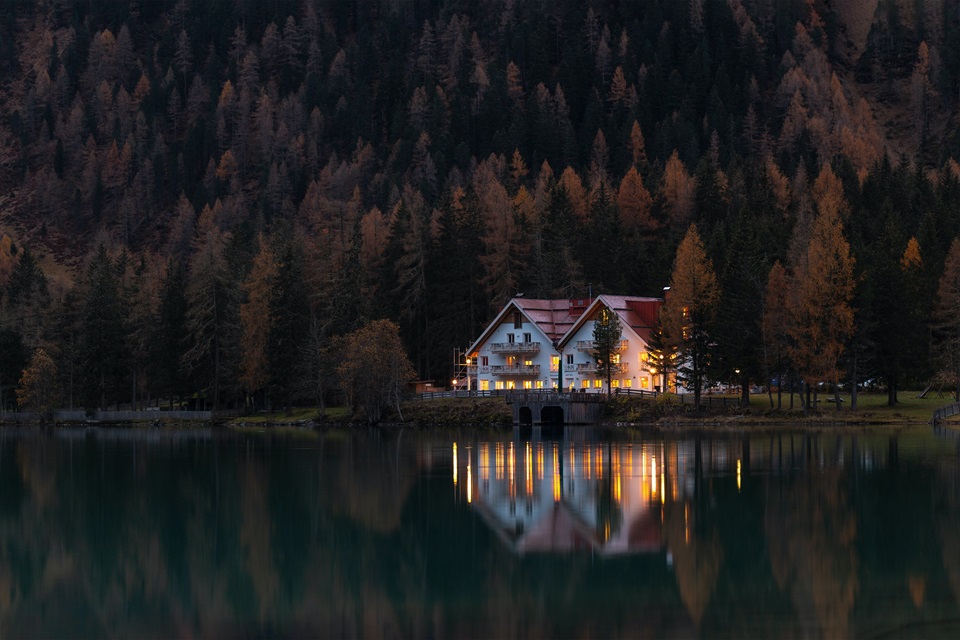The dream of owning a vacation home, a tranquil oasis away from the hustle and bustle of daily life, is something many of us cherish. Whether it’s a mountainside retreat, a beachfront cottage, or a cozy cabin nestled in the woods, the appeal of a vacation home is undeniable. But before embarking on this exciting journey, it’s essential to gather information and make informed decisions.
Utah, with its stunning natural beauty and recreational opportunities, is a hotspot for vacation home seekers. From the red rock canyons of Moab to the powdery slopes of Park City, the Beehive State offers a diverse range of options for those looking to invest in their very own slice of paradise.
Whether you are planning to buy a vacation home in Utah or any other state, from choosing the right location to understanding the financial aspects, there’s a lot to consider. With that said, let’s have a look at what it takes to make your dream of owning a vacation home a reality:
Table of Contents
Pick A Location
Location is the foundation of your vacation home experience. It determines the ambiance, the activities available, and, often, the future value of your investment. When it comes to choosing a location for your vacation home, you might want to explore the charm of Utah vacation homes, which offer stunning natural beauty and a wide range of recreational opportunities.
Besides, here are a few important considerations when selecting your dream location:
- Proximity: Think about how far you’re willing to travel. Is it a short drive from your primary residence, or are you looking for a destination that’s a bit more remote?
- Climate: Consider the climate of the area. Do you prefer a warm, sunny beach or a snowy mountain escape? Your ideal vacation spot should align with your preferred climate.
- Activities: What kind of activities do you enjoy during your getaways? Are you an avid skier, hiker, or beachgoer? Choose a location that offers the activities you love.
- Accessibility: Think about how easy it is to reach your vacation home. Consider factors like nearby airports, road conditions, and travel time.
- Future Value: While the primary goal is relaxation, it’s also wise to consider the potential for the property’s value to appreciate over time. Look into areas with a history of real estate growth.
Budgeting & Financing
Understanding your budget is a crucial step in the process of buying a vacation home. Consider the following financial aspects:
- Purchase Price: Determine your budget for the property. Remember to account for not just the initial purchase price but also ongoing costs like property taxes, insurance, and maintenance.
- Mortgage Options: Explore your mortgage options, and keep in mind that requirements for second homes may differ from primary residences.
- Rental Income: If you plan to rent out the property when you’re not using it, consider the potential rental income and how it could offset your expenses.
- Operating Costs: Factor in regular maintenance, utilities, and property management costs, especially if you’re planning to rent the property to others.
- Taxes: Consult a tax expert to understand the tax implications of owning a vacation home, including property tax and potential deductions.
Consider Seasonal Factors
Some areas are perfect during a particular season but might be less appealing during the off-season. Ensure you’re comfortable with the location year-round, especially if you plan frequent visits.
Evaluate Rental Potential
If you’re thinking of offsetting costs by renting out your vacation home, research the rental market in the area. This includes understanding peak rental seasons, local rental rates, and any regulations associated with renting.
Hire A Local Real Estate Agent
A local agent can provide insights that you won’t find online. They’ll know about properties that are about to be listed, the history of homes in the area, and local market trends.
Plan For Property Management
If your vacation home is far from your primary residence or if you plan to rent it out, you’ll need someone to manage the property. This can be a local property management company or a trusted person in the area.
- Insurance: Ensure your vacation home is adequately insured. Discuss the coverage options with your insurance provider to protect against potential risks.
- Home Security: Implement security measures, such as alarms, smart locks, and security cameras, to safeguard your property when you’re not there.
Enjoying Your Vacation Home
Once you’ve made the purchase, it’s time to relax and enjoy the fruits of your investment. Here are some tips for making the most of your vacation home:
- Regular Visits: Schedule regular visits to your vacation home to take advantage of your investment fully.
- Create Memories: Use your vacation home as a space to create unforgettable memories with family and friends.
- Explore the Area: Take the time to explore the local area and immerse yourself in the community.
- Stay Informed: Stay informed about local regulations, property values, and real estate trends in your vacation destination.
Think Long-Term
A vacation home is a significant investment. Consider its potential for long-term appreciation. Does the area have growth potential? Are there upcoming infrastructure developments that might boost property values?
Conclusion
Overall, buying a vacation home can be a great investment, and it doesn’t have to be complicated if you are well-informed. The market is constantly changing, so do your research, compare options, and fully understand the financial requirements before making any decisions.
Don’t forget to check out the surrounding amenities and local attractions when buying a vacation home. When you decide on the perfect spot for your getaway, consider hiring an experienced real estate agent who will help you navigate through the process efficiently and ensure that all goes smoothly.
Once you have settled into your new home, invite friends and family over to relax and make memories. Now is the time to take a look at what suits your lifestyle today—is it time for you to find that perfect vacation home?



